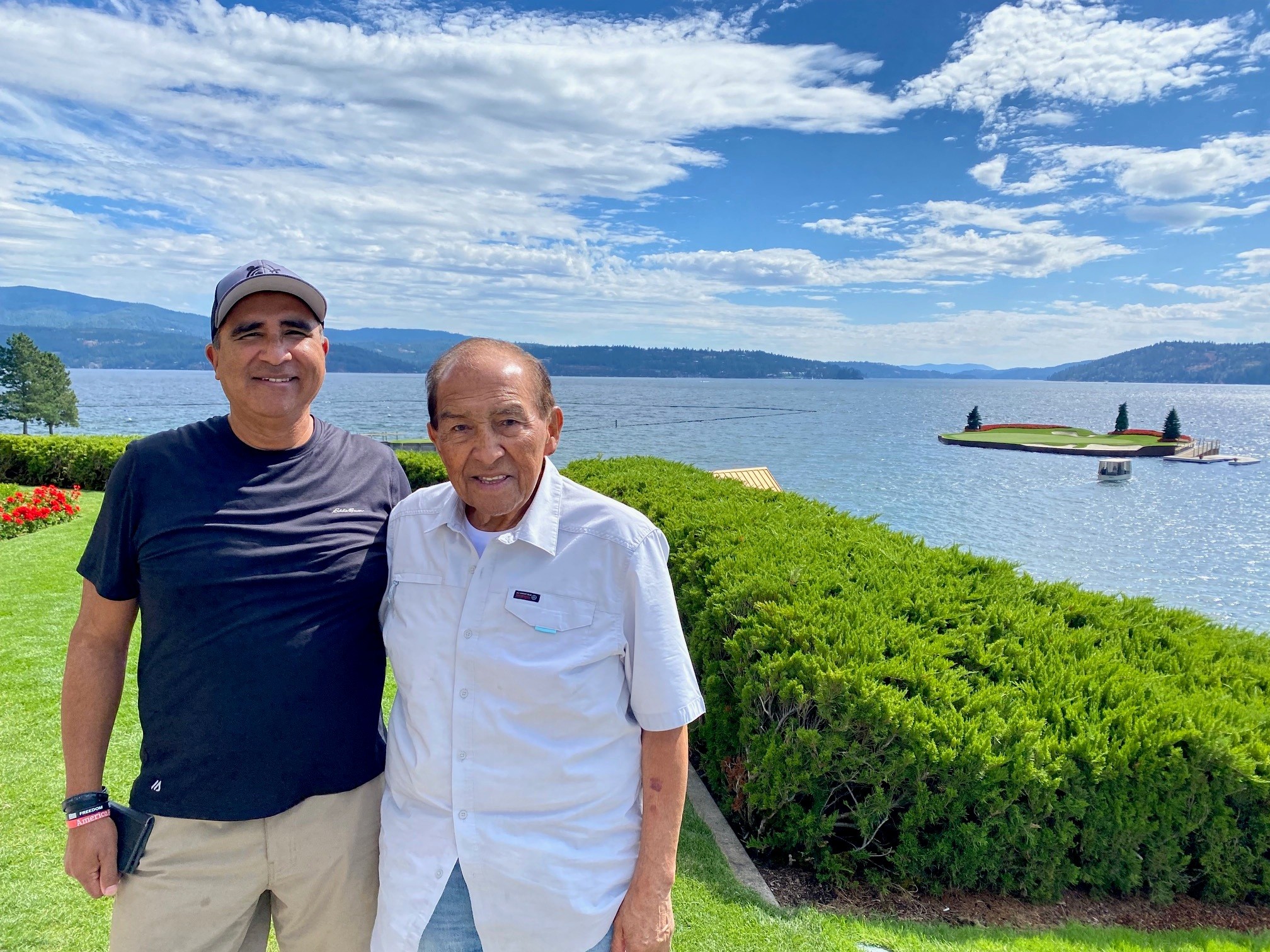“There are four boxes to be used in the defense of liberty: soap, ballot, jury, and ammunition. Use in that order.” This axiom applies equally well to all systems of popular government.
The United States of America is no democracy. It was never intended to be. Our Founding Fathers knew full well that Athenian Democracy had been a short-lived disaster. Ultimately, desperate and distracted Athenians gave their freedom up in return for the false promises of security offered by Demagogues.
So it always is with direct democracy. Those who inherit freedom never maintain their civic focus to keep it over the long term. True freedom is ever only for those brave enough and diligent enough to make the real personal sacrifices necessary for its existence.
Our Federal Republic is based on Rome’s. After ejecting its Kings, the Roman Republic successfully endured for roughly twice the current 250 year duration of America’s. Instead of Athenian universal participation, our citizens, like Rome’s, elect officials with limited powers balanced to mandate mutual cooperation.
Our civic duty is to be well-educated, thoughtful, and responsible with our personal franchise. “Well educated” does not mean being indoctrinated by today’s intellectual Gulags of Woke post-secondary colleges and universities. Rather, each citizen is supposed to assiduously inform himself about the powers of each office, the character of each candidate, their stated program, and any issues of controversy pertinent to the coming term.
This republican standard of civic duty is much more achievable than the Athenian’s idealistic democratic notion that a critical mass of citizens would make themselves informed about each and every matter that came before the General Assembly. And yet, today, every single problem within America’s contemporary Republic is rooted in the distractibility and avarice of a critical mass of American voters.
We have gotten the contemptable state of current U. S. politics that we, as a people and to our shame, both demand and deserve. Nothing can or will improve within our poisonous politics until we, who comprise the proverbial “great silent majority” of America’s citizens, sloughs off our inertia and confusion.
We must bestir ourselves to scrupulously vote for the good of the long-term interests of our Republic, instead of what is expedient for our factions. Unless we force an end to open corruption and insist on civic virtue, unless we work hard enough to reclaim power from a parasitical political class and their permanent bureaucracy, matters will only deteriorate further towards a rapidly approaching Fall of the American Republic.
Roman citizenship was earned, not given as a birthright. Only those men who personally risked their lives in the Legions were permitted to participate in politics.
Since Romans provided their own weapons and armor, the wealthiest fought in the front rank of battle, the middle class in the second rank, and the poor in the third rank. The social order was reflected in the life-and-death crucible of the battlefield. Civil cohesion was strengthened when men literally followed their employers into battle.
In “Starship Troopers”, Robert A. Heinlein’s thoughtful book and not Paul Verhoeven’s sarcastic movie, the Roman concept of “service equals citizenship” was modernized for today’s American Age. Only by personally risking one’s one and only life for the Republic does a person earn the moral right to help shape its fate.
Non-citizen residents could become rich, educated, and prominent in business and culture. But only Veterans could elect officials, and only they could hold office.
Those whose physical or mental characteristics would preclude military service could still earn citizenship by putting their life at risk for the common good in other ways. Dangerous work in the mines, fighting forest fires, or analogous risky occupations could be undertaken for a term of service. Even a person with limited physical or intellectual capacity could volunteer to do something dangerous for the common good.
The key was bravery. Does the good of society matter enough to you as an individual to make you step into harm’s way? If not, then enjoy the benefits of the sacrifices of others, but do not expect to be allowed to vote.
This simple test of civic virtue worked for Rome, making the critical mass of citizens highly motivated to take their civil responsibilities seriously. In this, Romans employed the soap box for speaking and the ballot box for deciding.
We, on the other hand, permit people who are utterly dependent on Welfare to exercise full citizenship rights. As much as I decry Willard “Mitt” Romney as a betrayer of Conservative hopes, he was correct when he was caught on camera saying that about 47% of voters received some kind of Federal assistance.
Since the modus operandi of the Democrat Party is to purchase votes with taxpayer money, those 47% (now more) will never vote to cut their own Welfare benefits. This state of affairs is absolutely intentional.
In no responsible system of emergency relief should physically and mentally healthy individuals be permitted to become permanent wards of the government. Like the rest of us, they should adapt by adopting a solid work ethic, retraining to acquire new skills, and moving to where the work is. There should be no such thing as a job that Americans won’t do!
Yet, not only has the Dole become permanent a way of life for shocking numbers of Americans, but they earn their benefits by reliably voting Democrat. This is a direct conflict of interest! Those who are on government assistance should absolutely have their franchise suspended until they achieve self-sufficiency. As Welfare should be temporary for those who are able, so should the suspension of their voting rights.
Roman citizenship was compromised by their successes in war and peace. Innumerable slaves entered Rome’s economy as prisoners of war after their victory over Hannibal in the Second Punic War. As the Republic’s Empire grew, free Romans found it increasingly impossible to keep family farms or to find gainful employment.
A veteran fresh from Legionary service often found his farm absorbed by a local plantation, and his family begging on Rome’s mean streets. His skills as a blacksmith or carpenter were not marketable, because anyone who hired him was in direct competition with other businesses which exclusively used slave labor. Consumers would not spend more for nails or cabinets made by a free citizen.
These desperate Romans, the Proletariat, were the destiny of what passed for Rome’s middle and working class. They could riot and destroy Rome, and they could vote, but they had little hope of working their way back to a better life. Soon, these poor wretches would become mere political pawns.
This should sound familiar to those many Americans who, in generations past, earned good livings in factories. Today, there is little hope for those best suited to work hard in industry, because Americans have priced themselves out of the labor market. Environmental regulations have made us even less competitive.
About a century before Christ, Rome’s Popular Party leaders, Tiberius and Gaius Gracchus, proposed land reform. They suggested a maximum acreage for plantations, with the “extra land” bought by the Republic. This would then be sold to the desperate Proletarians at favorable rates to get them out of the city and productively back onto the land.
Their opponents, the Party of the Best and Brightest (Optimates), rightly objected. Any government who could illegitimately seize lawfully acquired property was a tyranny: the antithesis of their Republic.
Into this impasse came the replacement of votes with violence. Each of the Gracchi were assassinated in their turn, publicly, by prominent clients of their Optimate political opponents. One assassination went unpunished. The other had the actual murderers executed, but with no penalty for the powerful politicians who ordered these killings.
This was a critical turning point. The jury box no longer functioned. The justice system was politicized. This is where the United States is right now. The Federal Department of Justice and the Courts have taken sides against Republicans and Conservatives. Without a fair and impartial independent Judiciary, there can be no freedom, and no real Republic.
In Rome, the ammunition box had replaced the soap box, ballot box, and jury box. Once murder was permitted to short-circuit debates and majority votes, it became the preferred way to win political contests. Rome’s citizens accepted this new normal. This was the moment when they lost their Republic.
The next step soon came when Rome was threatened by a barbarian horde, the Cymbri. Several Senatorial armies had been crushed as these savages moved towards Rome.
Gaius Marius, a lowborn soldier who had extorted money from every mine in Spain during his governorship there, had become the wealthiest man in the Republic. He offered to stop the Cymbri, on his terms. A panicked Senate agreed to his terms.
Marius hired a new army from the Proletariat. He provided them with weapons, armor, and the best training in the Empire. He would pay them well, and if they survived a term of service he would purchase farmland which would become theirs as their retirement benefit.
Marius’ armies may have marched under the banner “Senate and People of Rome”, but they were his personal army. He defeated the Cymbri, drove them from Italy, and became the First Man in Rome, permanent Consul; in effect its ruler.
Soon, Marius’ former aide Lucius Cornelius Sulla would follow Marius’ example and hire his own Proletarian Army. Sulla used this army to conquer key parts of the Greek east. After several victories, Sulla marched on Rome, defeated Marius, and became Dictator for Life. Fortunately, he soon died.
With Sulla’s death, Rome had its last chance to reverse its descent into Dictatorship. The practice of politics had transitioned from speeches and votes, to assassination, and finally to private armies waging Civil Wars. The ammunition box now reigned supreme. If only the Senate and People of Rome had stood up and taken their power back!
Alas, they did not! In their confusion, fear, and laziness, Romans permitted new generations of rulers to become Kings-by-any-other-name. Pompey, Crassus, Caesar, Antony, and eventually Octavian/Augustus wielded royal power to the thunderous acclaim of Rome’s crowds.
Demagoguery had come to Rome; “great men” promising to protect poor Romans from the challenges of life. The most famous statue that Augustus commissioned as Emperor had the city of Rome depicted in the form of an infant cherub, clinging dependently to Augustus’ skirts.
As our American Republic is patterned closely on the Roman Republic, we had best take heed and learn from their mistakes. We must reclaim the jury box, and restore the ballot box and soap box. Elsewise, we will only be left with the ammunition box, which would be a calamity even if we win. If we take responsible action, we can still prevent the Fall of the American Republic.







